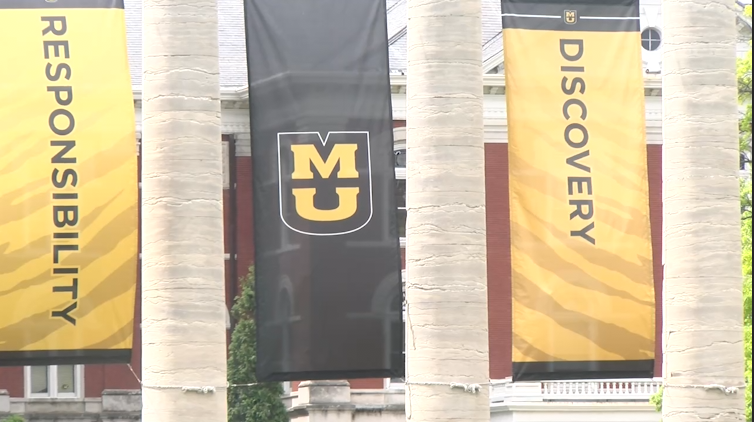Could a Lightning Strike Have Damaged the MU Fraternity House?

Published: 2025-09-16 01:33:17 | Category: Trump GNEWS Search
A chimney on the University of Missouri campus sustained damage on Monday evening, reportedly due to a lightning strike. Firefighters responded quickly to the scene, ensuring safety measures were in place, although no fire or injuries were reported.
Last updated: 04 October 2023 (BST)
Key Takeaways
- A chimney at the MU fraternity Farmhouse was reportedly damaged by lightning.
- No fire or injuries occurred during the incident.
- The Columbia Fire Department responded promptly to the emergency call.
- The incident highlights the risks associated with lightning strikes.
- Fire crews cleared the scene shortly after their arrival.
Incident Overview
On the evening of 2 October 2023, firefighters from the Columbia Fire Department (CFD) received reports of a potential fire at the Farmhouse fraternity, located in the 500 block of Kentucky Boulevard. The call came in at 6:45 p.m. and prompted an immediate response from local emergency services.
Response from Emergency Services
Upon arrival, fire crews conducted a thorough investigation to assess the situation. Thankfully, they found no evidence of fire. CFD spokeswoman Katherine Rodriguez confirmed that the chimney had suffered damage, likely due to a lightning strike. Firefighters cleared the scene by 7:11 p.m., ensuring that the area was safe.
Understanding Lightning Strikes
This incident serves as a reminder of the potential dangers posed by lightning strikes, particularly in urban areas where tall structures can act as conductors. Lightning can cause significant damage to buildings, power lines, and other infrastructure.
What Happens During a Lightning Strike?
When lightning strikes, it can create a powerful electrical surge that damages structures. The impact can lead to fires, explosions, and electrical system failures, especially if the building lacks adequate lightning protection systems.
Preventative Measures for Buildings
To mitigate the risks associated with lightning, many buildings, especially those in high-risk areas, are equipped with lightning rods and grounding systems. These systems help direct the electrical charge safely into the ground, reducing the risk of damage.
Community Impact
The Farmhouse fraternity, home to many students, will likely assess the damage and plan for repairs. The incident underscores the importance of safety protocols and preparedness for unexpected events like severe weather.
What to Do After a Lightning Strike
If lightning strikes a building, the following steps are recommended:
- Ensure everyone in the building is safe and accounted for.
- Check for visible damage or signs of fire.
- Contact emergency services if any signs of danger are present.
- Document the damage for insurance purposes.
- Engage professionals to assess the structural integrity of the building.
Conclusion
While the incident at the University of Missouri resulted in no injuries or significant fire, it serves as a critical reminder of the potential dangers posed by lightning strikes. Buildings must be well-equipped to handle such events, and communities should remain vigilant during storms.
FAQs
What causes lightning strikes?
Lightning strikes occur due to the buildup of electrical charges in storm clouds, resulting in a discharge of electricity when a difference in charge becomes significant enough to overcome the insulating properties of the air.
How can I protect my home from lightning strikes?
To protect your home, consider installing a lightning protection system, including lightning rods and grounding conductors, which help direct electrical charges safely to the ground.
What should I do if lightning strikes my home?
If lightning strikes your home, ensure everyone is safe, check for fires or damage, and contact emergency services. It's important to have a professional assess any structural damage.
Are lightning strikes common?
Lightning strikes are relatively common during thunderstorms, with millions of strikes occurring annually. However, the likelihood of a lightning strike hitting a specific building is relatively low.
Can lightning cause fires?
Yes, lightning can ignite fires when it strikes a building, especially if it damages electrical systems or flammable materials within the structure.



